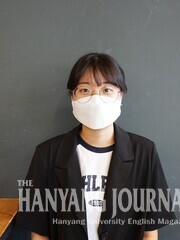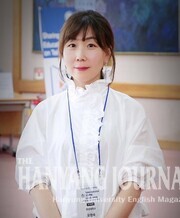It is not a surprise that questions on required credits for graduation and posts asking to exchange registered courses are often observed on the school community or chat rooms, during every course registration season. According to the current requirement criteria, Hanyang University (HYU) students should meet the following standards to earn a degree: obtain the required number of credits for major subjects, mandatory courses, a social volunteer service program, an internship, and more. However, the student community and the university seem to have a disparity in recognizing the flaws lying in course accessibility and the credit system of several majors. While the university has introduced countermeasures to ensure the educational rights of students, the objectives of mandated courses do not seem to be fully reached by the students. What are the reasons surrounding such disparity between graduation requirements and the demands of students?
Reasons Behind the Problem
The first glaring issue is that the limited quota of available seats disadvantages senior students who need to earn the required credits for graduation. This problem incurred due to the newly adopted education credit system that started in 2020. Initially, the required courses were classified based on their type, so students had to complete basic, core, and advanced courses. However, the move from classification through type to numbered units – where courses are categorized ranging from 100 to 400 units depending on the level of difficulty, and the method of education – has blurred the lines between basic, core, and advanced majors, narrowing the available course options. This is especially alarming for students who enrolled before such changes as they had been registered according to type classification which didn’t properly reflect into the new system.
Secondly, some students doubt the viability and necessity of mandatory courses introduced by the school; “Love in Deed and Truth” and “IC-PBL” which refers to “Industry-Coupled Problem and Project-Based Learning”. Though the school has introduced programs to benefit students, discussions should take place on whether the requirements for graduation are defeating its educational purpose or not, to satisfy the manifold interests of the students.
Students’ Stance

The student community has continuously outspoken about the incumbent course requirement system: that the criteria for graduation on top of the first-come, first-served registration process can serve as a disadvantage for some students. The survey conducted by the Hanyang Journal shows that 51.53 percent of students agree that improving the method of adjusting requirements for graduation is significant. One apparent problem is that the satisfaction of mandatory courses as a graduation criteria heavily varies from major to major. Yoo Chae-won, a Senior Student majoring in Sociology, pointed out the need to balance the different units of courses, primarily in the case of the sociology department. Yoo expressed concerns, asserting “I fully understand the objective behind limiting the course student quota, but the university should also extend the available quotas to assure students’ educational rights. In my freshman year, it was difficult to fulfill the requirements if the lecture style or content deviated from my career interest or preference.” Problems may remain, but in line with the outbreak of COVID-19, the scarcity issue seems to be gradually alleviating. Yoo added that the school has recently added three more professors to the Sociology Department during the pandemic to expand the available options.
The IC-PBL course is a learner-centered education model wherein students solve real-life social problems. However, its viability may depend on the characteristics of each department since the course contents are more linked to industrial institutions. As a student majoring in sociology, Yoo feels that the pivotal purpose of IC-PBL is more in accordance with the contents dealt in the College of Business or the College of Engineering. Compared to the College of Social Sciences or the College of Humanities, the IC-PBL courses seem more pertinent with students interested in industrial, business-related fields. She emphasized that the school should offer more flexibility and discretion to professors when they are merging the IC-PBL courses into their curriculum related to “social investigation”, by considering the objectives of each department.
Professor’s Stance

While there are improvements to be made, the university and professors are trying to convince students of the effectiveness and the necessity of lectures and refining lecture contents to suit various majors. Oh Hyun-sook, an Associate Professor in the Office of Innovative Higher Education Center for IC-PBL, addressed the importance of the courses, “The main goal of IC-PBL is to provide a convergent platform engaged by the university, the industry, and society where students communicate interactively to carry out innovative solutions.” Professor Oh emphasized that the Office of Innovative Higher Education Center is working continuously to advance the quality of lectures and foster interactions between students and professors by developing programs for the teaching methods and capacities of the faculty. She also added, “The IC-PBL Center provides several programs that also encompass topics in the global and social spectrum. For instance, as part of the non-subject sector course, the ‘Global Frontier Program’ aims to help students cope with the agendas of Sustainable Development Goals, and let them come up with innovative, promising solutions. Reflecting students’ demands, the IC-PBL will assure a better educational environment and analytical skills that can be garnered beyond the lecture-oriented method.”
The School’s Stance
The university is constantly responding to questions and concerns on the credit management plan by implementing the “Course Evaluation System” and a complaint solving system called “Course Quality Improvement Center”. Park Se-na, an Administrator in the Office of Academic Affairs (OAA) said, “The curriculum of 2020 to 2023 is gradually being incorporated, starting from the students of 2020, rather than altering into a new curriculum all of a sudden.” The OAA has recognized several complaints that there were several majors in which the number of students exceeded their quota due to other multi-major students and foreign exchange students. In such cases, Park explained that “The OAA is working on early corrective measures, and will continuously consider the problem to minimize inconveniences”. The OAA is gathering students’ opinions through various student service platforms, such as “Good Course TFT” and the “Online Student Complaint Service”.
Conclusion
Indeed, one size does not always fit all: one system cannot suit the demands of every student, nor the issues surrounding the requirements of graduation. However, to align varying opinions on graduation criteria and elicit higher quality lectures, the first pillar is realizing that the essence of this issue lies in the gap between how the university and the students perceive such disparity. With continuous communication, corresponding measures, such as arranging courses with more prudent consideration and allowing more seats available, should be discussed further.

